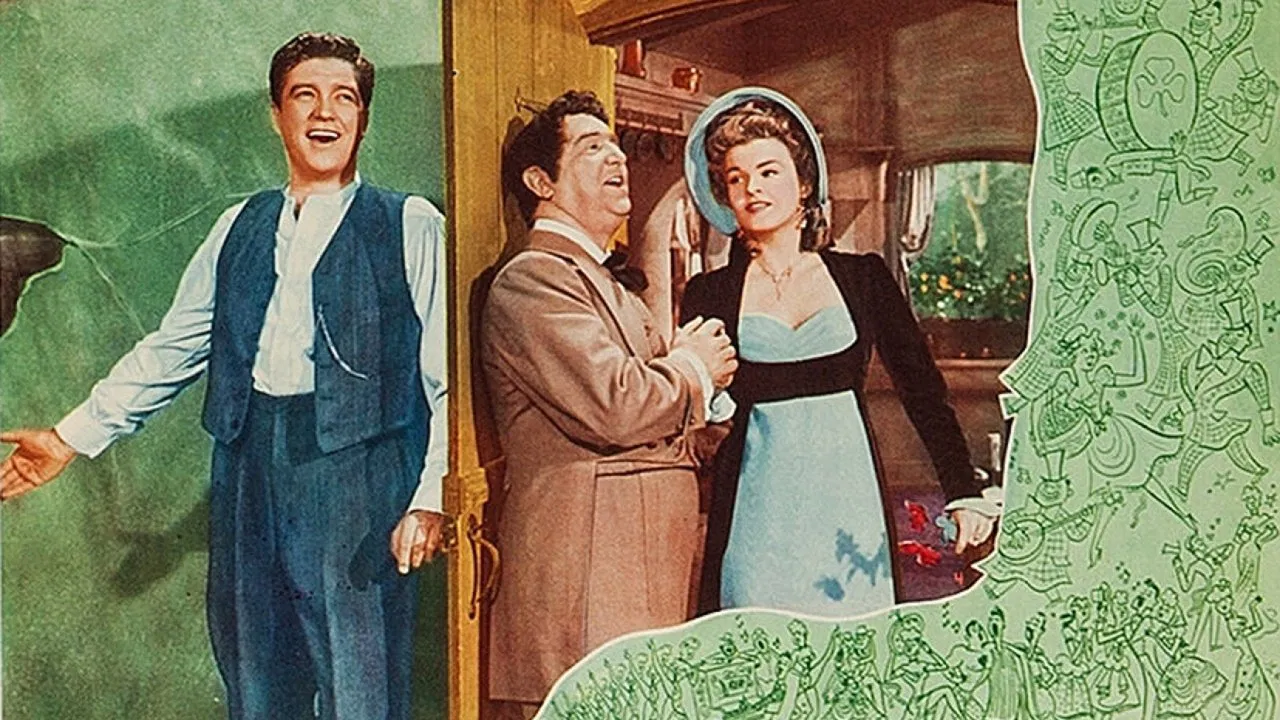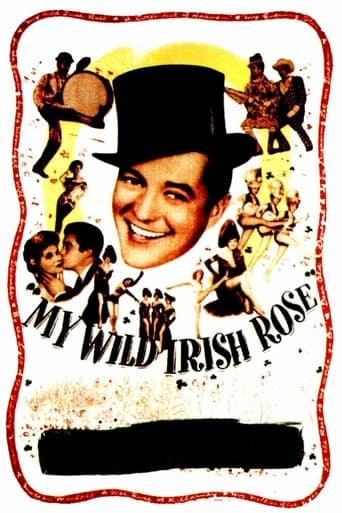

Pretty good movie overall. First half was nothing special but it got better as it went along.
... View MoreWhile it doesn't offer any answers, it both thrills and makes you think.
... View MoreIt’s fine. It's literally the definition of a fine movie. You’ve seen it before, you know every beat and outcome before the characters even do. Only question is how much escapism you’re looking for.
... View MoreLike the great film, it's made with a great deal of visible affection both in front of and behind the camera.
... View MoreThis is a wonderful film and I have loved it since I recorded the soundtrack off TV all the way back in the late 1950s and played it to death for several years. No review of mine is necessary here as just about every one already shown pretty much raves about the film. My sole reason for writing here is to strongly correct an assertion made in one of the more recently-dated reviews, this by John Ryan, who states that Dennis Morgan did not sing in the film, but was dubbed by Dennis Day. That is patently untrue. Mr. Morgan does all his own singing, and his voice could hardly be more different from Dennis Day's if he were Mario Lanza! The mix-up may be due to the fact that Dennis Day did record a three-disc set for RCA Victor with songs from the movie, but his voice is not heard in it at all. For the record, much as I like Dennis Morgan in the film, Dennis Day had three times his voice and much better high notes. Morgan may be listed as a tenor, but he mostly sings in high baritone keys throughout. But his singing is still quite enjoyable. For the record, I have several acoustical recordings of Chauncey Olcott, and whatever his stage attributes may have been, he did not sing even as well as Dennis Morgan, let alone Dennis Day.
... View MoreI couldn't tell you the last film to utilize black-face, but it was at least seven years after this colorful musical biography. You can't hide history, and it should be recalled with nostalgia if never done again outside the historical aspects that it did happen. The great American songbook began long before Irving Berlin, Cole Porter, the Gershwins and Rodgers and Hart. Before there was a legitimate Broadway, there was the minstrel show, and black-face, as shameful as it is today, was a major part of that. This is the typical pull yourself up from the bottom and rise to the top story of an American songwriter, and frankly, the story of Chauncey Olcott is probably based more upon legend than fact, but in the capable hands of Dennis Morgan, it's done very well. Arlene Dahl, a gorgeous redhead, plays his love interest, with Andrea King as the legendary Lillian Russell, helping Olcott and causing a strain between Morgan and Dahl.There are so many wonderful little ditties here, many still heard today, proving that good taste never dies even after its wounded a bit. The colorful costumes, energetic dance numbers and endearing corny comedy is the spark that lights this up. Some great comic character actors best known for their TV work to youngsters (George Tobias, "Bewitched") and William Frawley ("I Love Lucy") will give a sense of familiarity. Only one rose is needed here, as it's a rich, fat one, colorful and majestic.
... View MoreDennis Morgan took his pleasing tenor voice and in My Wild Irish Rose created the image of Irish entertainer Chauncey Olcott for generations to come. I doubt there are too many people who actually saw Chauncey Olcott perform in one of those tearful plays about the Auld Sod and they're not revived too often.But Olcott as performer and credited songwriter endures, no St. Patrick's Day would be complete without some of Olcott identified songs like When Irish Eyes Are Smiling, Mother Machree, and A Little Bit Of Heaven and of course the title song. These are a staple for St. Patrick's celebration in America. Remember these classics are of American origin, they were written for the musical plays Olcott starred in, but have endured so that they've become pure Irish out of love.Note in the film that Olcott is identified as a performer and that is more correct than to say he wrote these numbers. Back in the day before the founding the American Society for Composers, Authors, and Publishers it was common for songwriters to give copyright credit to a performer to cut him in on royalties for the sale of sheet music which was the venue by which popularity was measured. Al Jolson was the performer who most frequently used that practice.The film messes somewhat with the facts, but does get the basic story of Olcott's life down with him marrying Arlene Dahl a hometown girl from Buffalo. Olcott did in fact get his first theatrical break as the leading man for Lillian Russell played here by Andrea King. And he did succeed William J. Scanlon as the most popular singer of Irish ballads and Scanlon is played by William Frawley. I'm reasonably sure no one is around who saw Scanlon perform. Morgan was never in better voice than for this film. The musical numbers are staged well if not in the opulent style of Busby Berkeley. All in all My Wild Irish Rose is an enduring classic, no St. Patrick's Day would be complete without it.
... View MoreMaybe since I'm Irish I was expecting too much. I thought that with the list of songs there would be lots of Irish music and singing - you know, a St. Patrick's Day type musical atmosphere. Instead, I got a great deal of fictitious storyline about a turn-of-the-last-century Irishman who made good. Many of the listed songs were background or incidental to the plot. It was only towards the end of the picture that they got around to singing a few of those gorgeous Irish songs I know.No complaints with the cast, although with affable, uncharismatic Dennis Morgan as the lead it had the feel of a 'B' musical. Arlene Dahl is a nice ball of fluff but a barely passable actress, but the real surprise was William Frawley in what must be one of his best roles. Lots of other recognizable supporters were on hand - Sara Allgood, George Cleveland, George Tobias among others.It was nicely mounted and the DVD I had was of good quality. I was just disappointed with the amount of dialogue as opposed to time spent on the music.
... View More